Datasheet
Year, pagecount:2021, 8 page(s)
Language:English
Downloads:4
Uploaded:May 31, 2021
Size:705 KB
Institution:
-
Comments:
Ontario, Ministry of Health
Attachment:-
Download in PDF:Please log in!
Comments
No comments yet. You can be the first!Most popular documents in this category
Content extract
Ministry of Health COVID-19 Vaccine Information Sheet Version 5.0 – April 1, 2021 This document provides basic information only and is not intended to provide or take the place of medical advice, diagnosis or treatment, or legal advice. To date, the following COVID-19 vaccines have been authorized for use in Canada by Health Canada: Pfizer-BioNTech COVID-19 vaccine, Moderna COVID-19 vaccine, AstraZeneca COVID-19 vaccine, COVISHIELD COVID-19 vaccine, and Janssen COVID-19 vaccine. Information on the Janssen COVID-19 vaccine will be added to this document once supply has been confirmed for Canada. All vaccines for COVID19 authorized for use in Canada have been evaluated by Health Canada, using rigorous standards. Health Canada will continue to monitor all vaccines to make sure they are safe and effective. Please read this information sheet carefully and make sure all your questions have been answered by a health care provider before you get the vaccine. What is COVID-19 COVID-19 is an
infection caused by a new coronavirus (SARS-CoV-2). COVID-19 was recognized for the first time in December 2019 and has since spread around the world to cause a pandemic. COVID-19 is mainly passed from an infected person to others when the infected person coughs, sneezes, sings, talks or breathes. It is important to note that infected people can spread the infection even if they have no symptoms. Symptoms of COVID-19 can include cough, shortness of breath, fever, chills, tiredness and loss of smell or taste. Some people infected with the virus have no symptoms at all, while others have symptoms that range from mild to severe. How do the COVID-19 vaccines protect against COVID-19? All vaccines work by presenting our body with something that looks like the infection so that our immune system can learn how to produce natural protection. This natural protection then helps to prevent future illness if you come into contact with the COVID-19 virus in the future. You cannot get COVID-19 from
the vaccine 1|Page More detailed information on how COVID-19 vaccines provide protection can be found on Public Health Ontario’s (PHO) COVID-19 Vaccines webpage and What You Need to Know About COVID-19 Vaccine and COVID-19 Vaccines: Viral Vector-Based Vaccines. All COVID-19 vaccines authorized for use in Canada are effective at protecting against symptomatic, lab-confirmed disease. In large studies where people were given both doses of the vaccine, all of the vaccines worked very well to prevent people from becoming sick with symptomatic, lab-confirmed COVID-19. Vaccine efficacy 14 days after dose one and before dose two is estimated to be over 90% for Pfizer-BioNTech and Moderna and over 70% for AstraZeneca/COVISHIELD. Vaccine efficacy after dose two at the recommended interval is estimated to be over 90% for Pfizer-BioNTech and Moderna and over 80% for AstraZeneca/COVISHIELD. It is important that you receive two doses of these vaccines). Long-term protection against COVID-19 is
not achieved until after the second dose of vaccine is received. All of the COVID-19 vaccines authorized for use in Canada are also highly effective at preventing hospitalization. Who can receive these vaccines? A complete vaccine series should be offered to individuals without contraindications to the vaccine and in currently identified priority groups. • • • The Pfizer-BioNTech COVID-19 vaccine is currently authorized for individuals 16 years of age and older. The Moderna COVID-19 vaccine is currently authorized for individuals 18 years of age and older. The AstraZeneca COVID-19 vaccine and COVISHIELD is currently authorized for individuals 18 years of age and older. At this time, the National Advisory Committee on Immunization (NACI) recommends that AstraZeneca COVID-19 vaccine and COVISHIELD should not be used in adults under 55 years of age. To find out if you are eligible to receive the vaccine at this time based on prioritization please refer to Ontario’s COVID-19
vaccination plan. 2|Page Before receiving the vaccine, inform the health care provider who is providing you with the vaccine if: • • • • • • • • You are currently feeling unwell or have signs and symptoms of COVID-19. You have had a previous allergic reaction to a COVID-19 vaccine or any ingredients in the COVID-19 vaccines, or any other vaccine. You have any allergies or allergic conditions. You are or could be pregnant or are breastfeeding. You are immunosuppressed due to disease or treatment or have been diagnosed with an autoimmune condition. You have fainted or became dizzy after receiving a past vaccine or medical procedure or you have a fear of needles. The healthcare provider may offer supports to assist you, for example recommending that you receive the vaccine lying down to prevent fainting. You have a bleeding disorder or are taking medication that could affect blood clotting. This information will help the healthcare provider prevent bleeding or
bruising from the needle. You have received any other vaccine (not COVID-19 vaccine) in the past 14 days. The Vaccination Recommendations for Special Populations guidance document provides additional information for people who are breastfeeding or pregnant, have allergies, autoimmune conditions, or are immunocompromised due to disease or treatment, as well as for adolescents at very high risk of severe outcomes from COVID-19. If you have questions about whether the vaccine is right for you based on your medical condition, talk to your health care provider. Who should delay receiving these vaccines? • • • Individuals who have received another vaccine (not a COVID-19 vaccine) in the previous 14 days. Individuals with symptoms of an acute illness; these individuals should wait until symptoms have completely resolved in order to avoid attributing any complications resulting from the illness to vaccine-related side effects. Individuals with symptoms of COVID-19. To minimize the
risk of COVID-19 transmission, if these individuals arrive at an immunization clinic/venue, they will 3|Page • be instructed to follow current local public health measures and be encouraged to get tested. Symptomatic and asymptomatic individuals who have been advised to selfisolate due to suspected or confirmed COVID-19 infection or due to close contact with a COVID-19 case should not attend a vaccine clinic and should wait to get their vaccine until their isolation period is over. How is the vaccine administered? The vaccine is given as a needle in the upper arm (into the deltoid muscle). The province is following recommendations from the National Advisory Committee on Immunication (NACI) to extend the time interval of the second dose of COVID-19 vaccine for the Pfizer-BioNTech, Moderna and AstraZeneca/COVISHIELD vaccines up to 4 months after the first dose. • • • For the Pfizer-BioNTech vaccine, the recommended interval for the second dose is 4 months after the first
dose. For the Moderna vaccine, the recommended interval for the second dose is 4 months after the first dose. For the AstraZeneca and COVISHIELD vaccine, the recommended interval for the second dose is 4 months after the first dose. Individuals should receive the same COVID-19 vaccine product for their full vaccine series (i.e individual should get the same vaccine for their first and second dose) Vaccines of different types (e.g mRNA, viral vector) should be considered different vaccines and should not be used in the same series. What are the ingredients in the vaccines? PfizerBioNTech Ingredients • Medical mRNA AstraZeneca/ and COVISHIELD Moderna • mRNA • Non-replicating viral vector (ChAd) 4|Page Pfizer-BioNTech Ingredients ALC-0315 • ALC-0159 – a polyethylene glycol (PEG) • 1,2-Distearoyl• sn-glycero-3• phosphocholine (DSPC) • Cholesterol • • Lipids • Nonmedical • Salts • • Sugar • • AstraZeneca/ and COVISHIELD Moderna
Dibasic sodium phosphate dihydrate Monobasic potassium phosphate Potassium chloride Sodium chloride Sucrose • • Water for injection 1,2-distearoylsn-glycero-3phosphocholin e (DSPC) Cholesterol PEG2000 DMG SM-102 • • • • • Disodium edetate dihydrate (EDTA) Ethanol L‐Histidine L‐Histidine hydrochloride monohydrate Polysorbate 80 Acetic acid Sodium acetate trihydrate Tromethamine Tromethamine hydrochloride • • Sucrose • Sucrose • Water for injection • Water for injection • • • Magnesium chloride hexahydrate Sodium chloride It is important to review this list carefully as some people may be allergic to these ingredients, including polyethylene glycol (PEG), and polysorbate 80 and/or tromethamine. However, these rarely cause allergic reactions Polyethylene glycol (PEG) is found in products such as medications, bowel preparation products for colonoscopy, laxatives, cough syrups, cosmetics, skin creams, medical products used on the skin
and during operations, toothpaste, contact lenses and contact lens solution. Polyethylene glycol can also be found in food or drinks, but is not known to cause allergic reactions from food or drinks. Polysorbate 80 is found in medical 5|Page preparations (such as vitamin oils, tablets, and anticancer agents) and cosmetics. Tromethamine is a component in contrast media, oral and parenteral medications. What are the side effects of the vaccine? COVID-19 vaccines, like all vaccines, may cause side effects, although not everyone experiences them and those who do experience them mostly report minor side effects. The most commonly reported side effects after receiving a COVID-19 vaccine are localized reactions including pain, redness or swelling at the injection site, tiredness, headache, muscle pain, joint pain, chills, and mild fever. Ongoing studies on these COVID-19 vaccines indicate serious side effects found todate are extremely rare. People who have received the vaccine in these
studies continue to be monitored for any longer-term side effects. Clinic staff are prepared to manage a severe allergic reaction should it occur. When receiving your second dose of COVID-19 vaccine, tell the health care provider administering the second dose if you had any side effects after the first dose. Very rarely, AstraZeneca/COVISHIELD vaccine has been associated with a rare form of blood clot after vaccination. Doctors are calling this “vaccine-induced prothrombotic immune thrombocytopenia” (VIPIT). These blood clots have two important features: they occur 4 to 20 days after vaccination, and they are associated with low platelets (tiny blood cells that help form blood clots to stop bleeding). VIPIT seems to be rare, occurring in anywhere from 1 in every 125,000 to 1 in 1 million people. It is most common in women under the age of 55 Please see VIPIT Following AstraZeneca COVID-19 Vaccination for more information. Health Canada has assessed this and determined that the
benefits of the AstraZeneca/COVISHIELD vaccine in protecting Canadians from COVID-19 continue to outweigh the risks. Blood clots are common, especially in older people COVID-19 itself has been associated with causing blood clots, so all COVID-19 vaccines continue to be recommended for people who have had a blood clot in the past, or who have a family history of blood clots and who are receiving blood thinning medications. 6|Page When should I call my health care provider? If you experience side effects that are worrying you or do not seem to be going away after a few days, contact your health care provider or seek medical attention. Go to the nearest emergency department or call 911 if any of the following adverse reactions develop within three days of receiving the vaccine: • • • • • • • hives swelling of the face or mouth trouble breathing very pale colour and serious drowsiness high fever (over 40°C) convulsions or seizures other serious symptoms (e.g, “pins
and needles” or numbness) If you have received the AstraZeneca/COVISHIELD vaccine and you develop any of the following symptoms after receiving the vaccine please seek immediate medical attention: • shortness of breath • • • • • pain in the chest swelling or coldness in an arm or leg persistent abdominal pain severe or worsening headaches or blurred vision multiple small bruises, red or purple spots or blood blisters under the skin You can also contact your local public health unit to ask questions or to report an adverse reaction. When should I return for my second dose? If this is your first dose of the COVID-19 vaccine, be sure to return for your second dose as instructed by the vaccination clinic or the health care provider who provided you with your first dose. It is important that you receive two doses of the vaccine as protection against COVID-19 is not optimal until after the second dose of 7|Page vaccine is received. Bring your immunization record when
you come for your second dose. It is very important that you receive the second dose even if you experienced side effects the first time. Who should I contact with any questions? If you have any questions, please speak with your health care provider or the person providing the vaccine. 8|Page
infection caused by a new coronavirus (SARS-CoV-2). COVID-19 was recognized for the first time in December 2019 and has since spread around the world to cause a pandemic. COVID-19 is mainly passed from an infected person to others when the infected person coughs, sneezes, sings, talks or breathes. It is important to note that infected people can spread the infection even if they have no symptoms. Symptoms of COVID-19 can include cough, shortness of breath, fever, chills, tiredness and loss of smell or taste. Some people infected with the virus have no symptoms at all, while others have symptoms that range from mild to severe. How do the COVID-19 vaccines protect against COVID-19? All vaccines work by presenting our body with something that looks like the infection so that our immune system can learn how to produce natural protection. This natural protection then helps to prevent future illness if you come into contact with the COVID-19 virus in the future. You cannot get COVID-19 from
the vaccine 1|Page More detailed information on how COVID-19 vaccines provide protection can be found on Public Health Ontario’s (PHO) COVID-19 Vaccines webpage and What You Need to Know About COVID-19 Vaccine and COVID-19 Vaccines: Viral Vector-Based Vaccines. All COVID-19 vaccines authorized for use in Canada are effective at protecting against symptomatic, lab-confirmed disease. In large studies where people were given both doses of the vaccine, all of the vaccines worked very well to prevent people from becoming sick with symptomatic, lab-confirmed COVID-19. Vaccine efficacy 14 days after dose one and before dose two is estimated to be over 90% for Pfizer-BioNTech and Moderna and over 70% for AstraZeneca/COVISHIELD. Vaccine efficacy after dose two at the recommended interval is estimated to be over 90% for Pfizer-BioNTech and Moderna and over 80% for AstraZeneca/COVISHIELD. It is important that you receive two doses of these vaccines). Long-term protection against COVID-19 is
not achieved until after the second dose of vaccine is received. All of the COVID-19 vaccines authorized for use in Canada are also highly effective at preventing hospitalization. Who can receive these vaccines? A complete vaccine series should be offered to individuals without contraindications to the vaccine and in currently identified priority groups. • • • The Pfizer-BioNTech COVID-19 vaccine is currently authorized for individuals 16 years of age and older. The Moderna COVID-19 vaccine is currently authorized for individuals 18 years of age and older. The AstraZeneca COVID-19 vaccine and COVISHIELD is currently authorized for individuals 18 years of age and older. At this time, the National Advisory Committee on Immunization (NACI) recommends that AstraZeneca COVID-19 vaccine and COVISHIELD should not be used in adults under 55 years of age. To find out if you are eligible to receive the vaccine at this time based on prioritization please refer to Ontario’s COVID-19
vaccination plan. 2|Page Before receiving the vaccine, inform the health care provider who is providing you with the vaccine if: • • • • • • • • You are currently feeling unwell or have signs and symptoms of COVID-19. You have had a previous allergic reaction to a COVID-19 vaccine or any ingredients in the COVID-19 vaccines, or any other vaccine. You have any allergies or allergic conditions. You are or could be pregnant or are breastfeeding. You are immunosuppressed due to disease or treatment or have been diagnosed with an autoimmune condition. You have fainted or became dizzy after receiving a past vaccine or medical procedure or you have a fear of needles. The healthcare provider may offer supports to assist you, for example recommending that you receive the vaccine lying down to prevent fainting. You have a bleeding disorder or are taking medication that could affect blood clotting. This information will help the healthcare provider prevent bleeding or
bruising from the needle. You have received any other vaccine (not COVID-19 vaccine) in the past 14 days. The Vaccination Recommendations for Special Populations guidance document provides additional information for people who are breastfeeding or pregnant, have allergies, autoimmune conditions, or are immunocompromised due to disease or treatment, as well as for adolescents at very high risk of severe outcomes from COVID-19. If you have questions about whether the vaccine is right for you based on your medical condition, talk to your health care provider. Who should delay receiving these vaccines? • • • Individuals who have received another vaccine (not a COVID-19 vaccine) in the previous 14 days. Individuals with symptoms of an acute illness; these individuals should wait until symptoms have completely resolved in order to avoid attributing any complications resulting from the illness to vaccine-related side effects. Individuals with symptoms of COVID-19. To minimize the
risk of COVID-19 transmission, if these individuals arrive at an immunization clinic/venue, they will 3|Page • be instructed to follow current local public health measures and be encouraged to get tested. Symptomatic and asymptomatic individuals who have been advised to selfisolate due to suspected or confirmed COVID-19 infection or due to close contact with a COVID-19 case should not attend a vaccine clinic and should wait to get their vaccine until their isolation period is over. How is the vaccine administered? The vaccine is given as a needle in the upper arm (into the deltoid muscle). The province is following recommendations from the National Advisory Committee on Immunication (NACI) to extend the time interval of the second dose of COVID-19 vaccine for the Pfizer-BioNTech, Moderna and AstraZeneca/COVISHIELD vaccines up to 4 months after the first dose. • • • For the Pfizer-BioNTech vaccine, the recommended interval for the second dose is 4 months after the first
dose. For the Moderna vaccine, the recommended interval for the second dose is 4 months after the first dose. For the AstraZeneca and COVISHIELD vaccine, the recommended interval for the second dose is 4 months after the first dose. Individuals should receive the same COVID-19 vaccine product for their full vaccine series (i.e individual should get the same vaccine for their first and second dose) Vaccines of different types (e.g mRNA, viral vector) should be considered different vaccines and should not be used in the same series. What are the ingredients in the vaccines? PfizerBioNTech Ingredients • Medical mRNA AstraZeneca/ and COVISHIELD Moderna • mRNA • Non-replicating viral vector (ChAd) 4|Page Pfizer-BioNTech Ingredients ALC-0315 • ALC-0159 – a polyethylene glycol (PEG) • 1,2-Distearoyl• sn-glycero-3• phosphocholine (DSPC) • Cholesterol • • Lipids • Nonmedical • Salts • • Sugar • • AstraZeneca/ and COVISHIELD Moderna
Dibasic sodium phosphate dihydrate Monobasic potassium phosphate Potassium chloride Sodium chloride Sucrose • • Water for injection 1,2-distearoylsn-glycero-3phosphocholin e (DSPC) Cholesterol PEG2000 DMG SM-102 • • • • • Disodium edetate dihydrate (EDTA) Ethanol L‐Histidine L‐Histidine hydrochloride monohydrate Polysorbate 80 Acetic acid Sodium acetate trihydrate Tromethamine Tromethamine hydrochloride • • Sucrose • Sucrose • Water for injection • Water for injection • • • Magnesium chloride hexahydrate Sodium chloride It is important to review this list carefully as some people may be allergic to these ingredients, including polyethylene glycol (PEG), and polysorbate 80 and/or tromethamine. However, these rarely cause allergic reactions Polyethylene glycol (PEG) is found in products such as medications, bowel preparation products for colonoscopy, laxatives, cough syrups, cosmetics, skin creams, medical products used on the skin
and during operations, toothpaste, contact lenses and contact lens solution. Polyethylene glycol can also be found in food or drinks, but is not known to cause allergic reactions from food or drinks. Polysorbate 80 is found in medical 5|Page preparations (such as vitamin oils, tablets, and anticancer agents) and cosmetics. Tromethamine is a component in contrast media, oral and parenteral medications. What are the side effects of the vaccine? COVID-19 vaccines, like all vaccines, may cause side effects, although not everyone experiences them and those who do experience them mostly report minor side effects. The most commonly reported side effects after receiving a COVID-19 vaccine are localized reactions including pain, redness or swelling at the injection site, tiredness, headache, muscle pain, joint pain, chills, and mild fever. Ongoing studies on these COVID-19 vaccines indicate serious side effects found todate are extremely rare. People who have received the vaccine in these
studies continue to be monitored for any longer-term side effects. Clinic staff are prepared to manage a severe allergic reaction should it occur. When receiving your second dose of COVID-19 vaccine, tell the health care provider administering the second dose if you had any side effects after the first dose. Very rarely, AstraZeneca/COVISHIELD vaccine has been associated with a rare form of blood clot after vaccination. Doctors are calling this “vaccine-induced prothrombotic immune thrombocytopenia” (VIPIT). These blood clots have two important features: they occur 4 to 20 days after vaccination, and they are associated with low platelets (tiny blood cells that help form blood clots to stop bleeding). VIPIT seems to be rare, occurring in anywhere from 1 in every 125,000 to 1 in 1 million people. It is most common in women under the age of 55 Please see VIPIT Following AstraZeneca COVID-19 Vaccination for more information. Health Canada has assessed this and determined that the
benefits of the AstraZeneca/COVISHIELD vaccine in protecting Canadians from COVID-19 continue to outweigh the risks. Blood clots are common, especially in older people COVID-19 itself has been associated with causing blood clots, so all COVID-19 vaccines continue to be recommended for people who have had a blood clot in the past, or who have a family history of blood clots and who are receiving blood thinning medications. 6|Page When should I call my health care provider? If you experience side effects that are worrying you or do not seem to be going away after a few days, contact your health care provider or seek medical attention. Go to the nearest emergency department or call 911 if any of the following adverse reactions develop within three days of receiving the vaccine: • • • • • • • hives swelling of the face or mouth trouble breathing very pale colour and serious drowsiness high fever (over 40°C) convulsions or seizures other serious symptoms (e.g, “pins
and needles” or numbness) If you have received the AstraZeneca/COVISHIELD vaccine and you develop any of the following symptoms after receiving the vaccine please seek immediate medical attention: • shortness of breath • • • • • pain in the chest swelling or coldness in an arm or leg persistent abdominal pain severe or worsening headaches or blurred vision multiple small bruises, red or purple spots or blood blisters under the skin You can also contact your local public health unit to ask questions or to report an adverse reaction. When should I return for my second dose? If this is your first dose of the COVID-19 vaccine, be sure to return for your second dose as instructed by the vaccination clinic or the health care provider who provided you with your first dose. It is important that you receive two doses of the vaccine as protection against COVID-19 is not optimal until after the second dose of 7|Page vaccine is received. Bring your immunization record when
you come for your second dose. It is very important that you receive the second dose even if you experienced side effects the first time. Who should I contact with any questions? If you have any questions, please speak with your health care provider or the person providing the vaccine. 8|Page
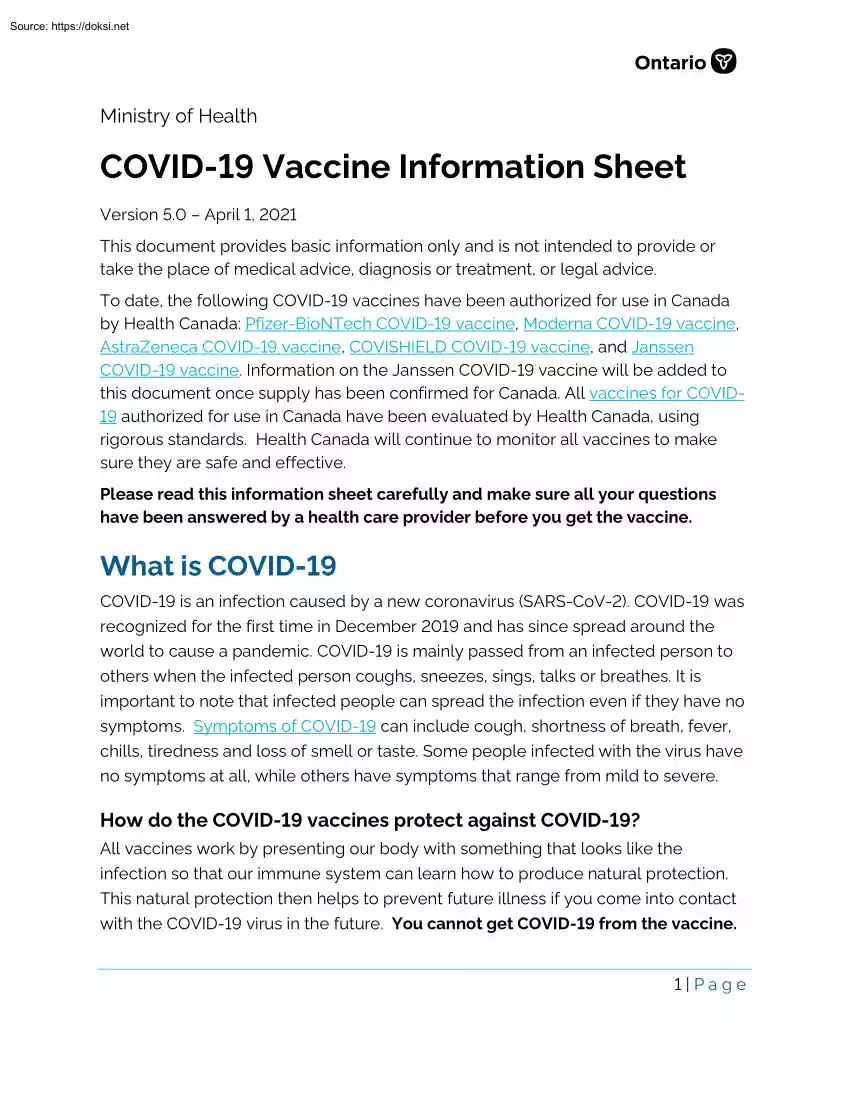
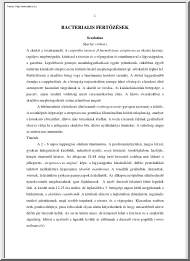
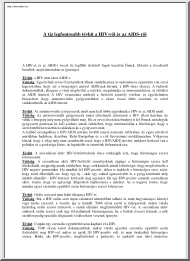
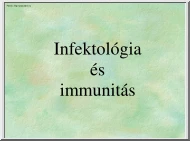
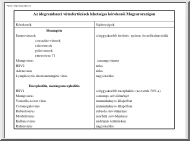
 Just like you draw up a plan when you’re going to war, building a house, or even going on vacation, you need to draw up a plan for your business. This tutorial will help you to clearly see where you are and make it possible to understand where you’re going.
Just like you draw up a plan when you’re going to war, building a house, or even going on vacation, you need to draw up a plan for your business. This tutorial will help you to clearly see where you are and make it possible to understand where you’re going.